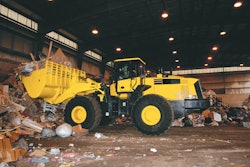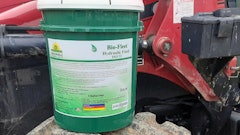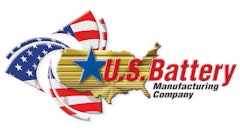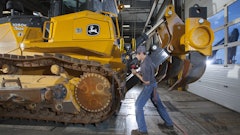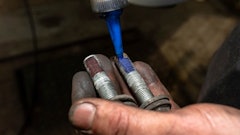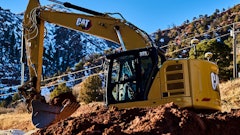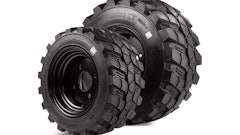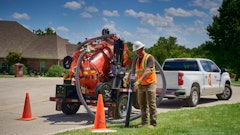Used motor oil is a hazardous waste. When disposed of improperly or illegally dumped, oil does not readily break down and has the potential to cause serious environmental impact. The U.S. EPA estimates that just one gallon of used oil has the potential to contaminate up to one million gallons of drinking water.
Used oil filters are recyclable because they are made of steel, which is North America’s number one recycled material. Some states have banned used oil filters from landfills, while others have placed restrictions on how they can be discarded. Most states follow federal requirements for used oil filter disposal.
The EPA requires that used oil filters be drained of all free-flowing oil before they are discarded or recycled. Currently, U.S. manufactured oil filters are exempt from hazardous waste regulation if the oil filter is:
- Punctured through the dome end or anti-drain back valve and hot-drained
- Hot-drained and crushed
- Hot-drained and dismantled
- Hot-drained using an equivalent method to remove used oil
Hot-draining, as defined by the EPA, is draining the oil filter at or near-engine operating temperature but above 60ºF. In other words, remove the filter from the engine while it is still warm, then puncture or crush and drain the filter to remove any residual oil.
The EPA recommends hot-draining for a minimum of 12 hours, although specific state requirements may vary.
Motor oil
Simply put, used oil is exactly what its name implies – any petroleum-based or synthetic oil that has been used.
Lubricating oil does not wear out. However, it becomes “dirty” as it does its job. During normal use, impurities such as dirt, metal scrapings, water or chemicals can get mixed in with the motor oil, so that in time, it no longer performs well. Eventually, this used oil must be replaced with virgin or re-refined oil to do its job.
Used motor oil can be collected, recycled and used over and over again. An estimated 380 million gallons of used oil are recycled each year.
Recycled motor oil is used oil that has undergone extensive re-refining to remove all contaminants to produce a good-as-new base oil. The resulting product – called re-refined oil – must meet the same stringent refining, compounding and performance standards as virgin motor oil.
Re-refining is an energy-efficient and environmentally beneficial method of managing used oil. Less energy is required to produce a gallon of re-refined base stock than a base stock from crude oil.
American Petroleum Institute (API)-licensed re-refined oils must pass the same cold-start, pumpability, rust-corrosion, engine-wear and high-temperature viscosity tests that virgin oils do. The API, the only national trade association that represents all aspects of America’s oil and natural gas industry, and American Automobile Manufacturers Association have developed the Engine Oil Licensing Certification System (EOLCS) to ensure all engine oils consistently meet performance specifications.
Various benefits
There are a number of reasons to consider implementing a used oil and used oil filter collection and recycling service.
For one thing, due to federal and state regulatory requirements, used oil and filters must be disposed of in an environmentally-safe manor, says Jim Scott, business development manager, Universal Environmental Services, which provides single-source environmental solutions for vehicle and trucking service centers, government, fast lubes, service stations and industrial facilities. A licensed recycler can help provide an outlet for this material, leaving proper documentation to verify the material is being handled in an approved manor.
“The right environmental services provider can actually return used oil to the marketplace as clean, pure re-refined motor oil that can be reused indefinitely with no loss of quality,” notes Matthew Gudorf, director, oil collections and products, Safety-Kleen Systems, North America’s largest collector, recycler and re-refiner of used oil.
“Oil re-refining reduces greenhouse gases and heavy metal emissions when compared to burning used oil as fuel,” he says. “Re-refining is easier on the environment, is a better way to handle used oil and makes it a renewable resource.
Gudorf points to several other valuable benefits:
- Since used oil filters still contain oil when disposed, having them recovered by the right recycling company is desirable since the used oil would be recovered and possibly re-refined into new motor oil, not to mention the fact that this conserves limited space in landfills.
- Re-refining used oil into new engine oil helps reduce the country’s dependency on foreign crude.
Having a used oil and used oil filter collection and recycling service is like a insurance policy, adds Charles Jackson, president, Filter Specialty, a company that provides used oil and used oil filter recycling services. “When companies set up shop or lease a building, they have exposure to contamination of used oil, and when selling properties, a shop needs to provide where all their waste steams are going. By recycling, companies can be protected from litigation in case of property pollution issues.”
Used oil is a commodity that presents value for the generator, Universal Environmental Services’ Scott points out. “The value of the material is often determined by several factors, such as water content and sediment, and the drier the material the higher the potential value. In most cases, the material will be recycled into an alternative fuel source so contaminates would alter a fuel often de-value the material.”
“Unless a shop uses a waste oil heater to burn their on-site waste oil, it can get money back,” says Jackson of Filter Specialty.
Material collection
Generally, used oil tanks and used filter containment bins are the responsibility of the generator of the material, says Scott of Universal Environmental Services. “In some cases, due to collection capability, a collector will provide larger containment for used filters. This is often the case in higher volume shops. A larger capacity filter bin is the preferred containment, resulting in less required pick ups of the material.
Filter Specialty provides drums or bins for used oil filters but lets each shop provide storage for waste oil. It also gives suggestions on the placement of containers.
Due to the weight of the used filters, vendors typically provide the bins, and many do so at no charge, Safety-Kleen Systems’ Gudorf says. Used oil tanks are not typically replaced when changing service providers.
“The fleet shop manager should, however, evaluate their used oil storage tanks to ensure they have proper containment and fittings to prevent loss or spillage while pumping from the oil truck,” he advises. “Most oil recycling companies can provide a tank if needed.”
Used oil filters need not to be drained and crushed before they are recycled, as long as the used filters are being stored in a drum or bin, says Gudorf. Draining the oil filter is only required if the fleet shop decides to throw oil filters in the trash.
“Crushing is not a requirement, Universal Environmental Services’ Scott adds. “However, it does insure the majority of the residual oil is captured. If the shop elects to have the filters recycled, neither hot draining nor crushing is required. Any residual oil will be captured and recycled during the filter recycling process.”
After life
Ever wonder what happens with the collected used oil and used oil filters?
Typically, the oil filters are shredded and metals are extracted and sold as scrap, says Gudorf of Safety-Kleen Systems. These metals end up in the manufacture of rebar, cast metals like city water plates and manhole covers and other metal products, adds Jackson of Filter Specialty.
The used oil extracted from the filters is generally sold to used oil recovery companies, Gudorf says. An estimated 85 percent of used oil is cleaned, dehydrated and burned as an energy alternative to number 2 diesel or natural gas. A small percentage of used oil collected is re-refined and processed into an OEM approved engine or hydraulic oil.
Used oil is first tested to determine suitability for re-refining. In general terms, if deemed suitable, it is first dehydrated, a process which removes water which is then treated before being released to the environment. Next, comes vacuum distilling to remove contaminants such as dirt, water, fuel and used additives. This is followed by hydrotreating to remove the remaining chemicals and contaminants from the base oil to restore it to its original condition.
Once that process is complete, additives are blended into the base stock to fortify and bring the oil to the desired performance standards. These processes are similar to the processes applied to virgin crude oil.
Management service
When it comes to looking to contract with a used oil and used oil filter collection service, Filter Specialty’s Jackson advises making sure the company is EPA-registered and has proper insurance – with an emphasis on pollution liability – and a good safety record.
"Inquire about the compliance history of the potential recycler,” says Scott of Universal Environmental Services. Among the questions to get answered: How well have they managed the material they have collected in the past? Have they been a responsible recycler, or have they had violations resulting in citations and fines as a result of mishandling generator streams.
“As the generator of the regulated material, ultimately the shop is liable for the material from cradle-to-grave,” he points out. “A large misconception is the shop’s liability ends when a collector picks it up. In fact, the shop/generator is liable for the material until it reaches it’s destination of recycle.”
The cradle-to-grave system is the concept of accounting for hazardous waste from the point of generation until it is no longer hazardous (for example, treatment); it is destroyed, (for example, incineration); or it is disposed of (for example, placed in a landfill).
Safety-Kleen Systems’ Gudorf notes that since the cost of recycling used oil and filters is impacted by the rise and fall of crude and other related energies, the collection or recycling company performing the service must be able to sustain rising costs of handling oil and filters. “The fleet shop manager should consider the size and stability of the company that will be servicing them,” he says. “It’s not a guarantee, but size does matter when choosing a vendor in this industry. Smaller companies may find it tough to sustain in this market.”
Another key consideration, according to Gudorf is to know when and how often the shop will be paid for used oil collection, and what does the service provider do with the used oil and filters?
Re-refining motor oil
Re-refining motor oil recycles the used oil through a conventional refining process, where it is cleansed of contaminants such as dirt, water, fuel, used additives and other chemicals and impurities, explains Matthew Gudorf, director, oil collections and products, Safety-Kleen Systems, North-America’s largest collector, recycler and re-refiner of used oil. “The resulting base oil is exactly the same as if it were just refined from crude - no difference.”
“When you ‘close the recycling loop’ by buying oil produced in this manner, you are making a switch to a sustainable product and conserving non-renewable resources, he says.
Gudorf cites a recent study by the U.S. Department of Energy and the U.S. EPA that found it takes up to 85 percent less energy to re-refine used oil compared to manufacturing base oil from crude. For every 100,000 gallons of oil collected, re-refined and re-used, it prevents more than 1,080 metric tons of greenhouse gas emissions.
Re-refining is not new. Safety-Kleen, by way of example, has been one of the biggest motor oil suppliers to the U.S. Military on a global basis for nearly two decades. Its lubricants are also used in state trooper vehicles, emergency vehicles and U.S. Postal Service fleets in many markets across the United States.
How to choose a filter management service
When researching a prospective filter management company, the Filter Manufacturers Council, which represents North American manufacturers of vehicular and industrial filtration products, recommends asking certain questions. The questions, which should be tailored to a shop’s individual needs and circumstances, include:
- Does the company have general liability insurance and environmental insurance?
- Will the company provide you with the names and phone numbers of business references?
- Do you receive an audit trail from each point that the filters are handled?
- Does the company have any past or pending environmental enforcement actions?
- How long has the company been in the filter business?
- What is done to the filters? How are they processed (e.g., crushed, shredded, dismantled)?
- What is the ultimate disposition of the filters?
- What requirements must the generator meet to satisfy the transporter’s, processor’s and recycler’s specification for the filters (e.g., drained, punctured, kept in spill-proof containers)?
- Does the company have all appropriate licenses and permits required by the state and/or federal regulators allowing them to handle used oil filters?
- Does the company provide a written contract that provides price; exact services provided (e.g., frequency, what is done to the filters, who else handles the filters?); and your responsibilities as a generator (e.g., other wastes allowed in containers, type of containers, draining requirements)?
How to choose a used oil contractor
There are three main criteria for a selecting a used oil contractor, according to the State of Washington’s Department of Ecology. They are:
- Is the company in compliance with regulations for hazardous waste?
- Does the company have financial assurance that would reduce a shop’s liability or provide less risk?
- What are the costs and services provided?
To help evaluate contractors, the Department has developed a simple checklist:
- Will the contractor provide help with correctly identifying my waste using the procedures in the state hazardous waste regulations without charging extra?
- Will the contractor make sure my waste is packaged, labeled and shipped safely and in compliance with U.S. DOT and state regulations for hazardous waste without charging extra?
- Will the contractor help with understanding the state regulations and how they apply to waste management at my business without charging extra?
- Does the contractor have a record without any serious violations of the state hazardous waste regulations?
- Does the contractor carry pollution liability insurance that will pay to clean up spills or accidents from the transportation of your hazardous waste, and cover damages to people or property?
- Does the contractor carry pollution liability insurance that will pay to clean up spills or accidents from the management of your hazardous waste at a facility, and cover damages to people or property?
- Is there a trust fund, insurance policy, letter of credit or other way to assure that cleanup costs will be paid for if the management facility receiving my hazardous waste suddenly closed or went out of business?





